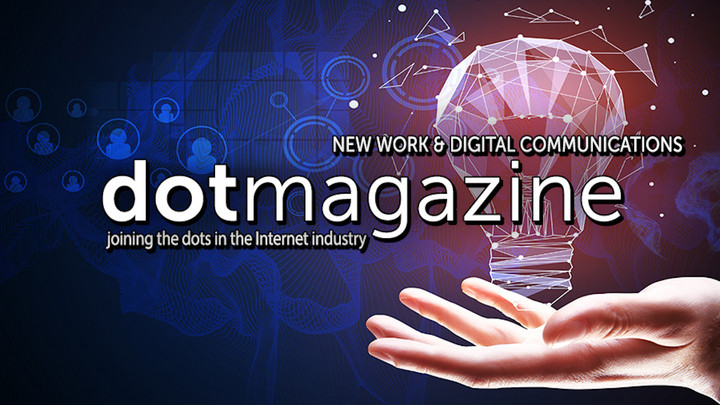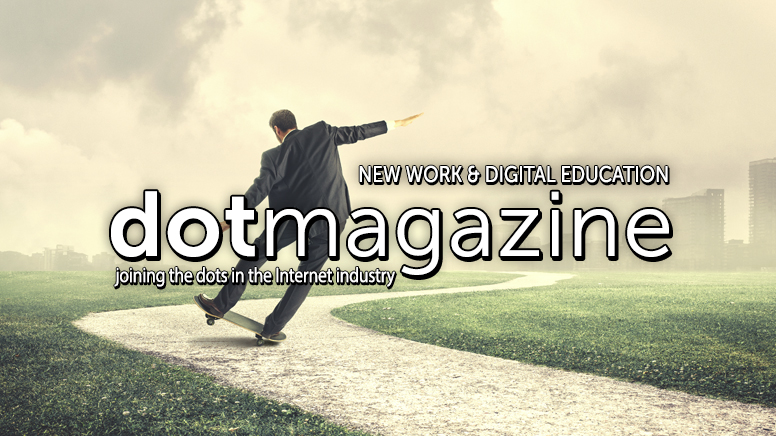New Work: Achieving Both Company & Personal Goals – doteditorial
Offering employees flexibility and supporting diversity benefits the company as a whole, as Lucia Falkenburg, CPO of the eco Association explains.

© Peshkova | istockphoto.com
How can companies find the balance between their need for efficiency and results and their employees’ need for flexibility and creative freedom? The answer is that this does not necessarily represent a contradiction. In globally-operating companies and in a global world with different time zones, flexible working times make good sense for both sides. To be honest, many companies have long since stopped doing business purely 9 to 5, and for these, flexibility in the design of staff working times is also a sensible option.
Creating this flexibility in terms of where and when employees carry out their tasks is occurring in parallel with an increasingly strong focus on results, rather than simple presence in the office. The achievement of goals is becoming more important than simply being at your desk. Here, collaborative technologies provide the foundation for enabling this dual approach of flexible and activity-based work, as Andreas Weiss, Director of Digital Business Models with eco explains in interview. Through embracing the possibilities of digitalization, it is not just large global corporations, but also SMEs who can convert New Work concepts into practice (read Detlev Artelt's article "5 Tips on How to Drive Digitalization Forward").
At the same time, new possibilities are arising to create a better balance between work and private life or family life. This is not only of importance for the many qualified women (on the topic of Women in Tech, see the interviews with Sabrina Waltz from 1&1 IONOS and Stefanie Kemp, Member of the eco Association Presidency Committee) out there in the job market, but for everyone.
Companies make use of New Work concepts in their HR policy to create a competitive advantage in the search for skilled employees (a topic raised by Melanie Buck, Chief of Staff at GoDaddy, in her interview “New Work – Benefits for Companies and Employees Alike”) by dealing honestly with the question of what they as an employer have to offer. This could be individual professional development concepts, flexible part-time offers, or foresighted health management and a family-friendly attitude. What is more important is that what is offered meets the needs of your staff. This works particularly well if you actually ask your staff what they need, and you have the courage to present yourself authentically, rather than just stringing together a bunch of employer-branding buzzwords.
dotmagazine Special: The Future of Email
This issue, dotmagazine takes a special look at email as the quintessential digital communication medium. Julia Janssen-Holldiek, Director of the Certified Senders Alliance, takes us into the realm of individualized email as a marketing tool, while Marcel Becker from Verizon Media Group and Seth Blank from Valimail explore the many initiatives that are set to revolutionize email in the future. Mark Robbins from Salesforce introduces interactive email as an exciting new tool for marketers, and Leonie Jonker from Paula's Choice Skincare explains how customer feedback can be collected via email, and its impact on customer retention. Vittorio Bertola and Robert Virkus from Open-Xchange introduce a new open-source chat system which functions over email, and Hannah Kreyenberg from Hornet Security puts the focus on email security and staff security awareness.
Despite the current skills gap in many specialist areas, companies can retain and develop the skilled staff they need through nurturing talent, professional development, and enabling individual career paths. There’s more to offer today than a company car and the executive suite. Nowadays, career paths are many-faceted and diverse, and more and more often they are oriented to the respective phases of the employee’s life. For some “New Workers”, the further development of their skill set, or being given room for creativity, or the possibility to create a balance between job and private life are concepts which are more important than a title on a business card.
Far-sighted companies committed to addressing specialist skills gaps in the long-term should also be prepared to get involved in a whole-societal approach to digital education.
This, for example, can involve collaboration with education providers in areas such as curriculum design and placements. In approaching digital education, ethics and diversity need to be placed center stage, as Alexander Rabe, eco's Managing Director points out in his article "Digital Education as the Foundation of Digital Ethics in the Interconnected World". A crucial slant on the topic of ethics and education is also taken by the leading global computer linguist Prof. De Kai Wu in his interview "Teaching AI to Learn". Since AI algorithms are taught primarily by us, they are dependent on human education and the direction it takes. And such algorithms need to be informed by a representative cross-section of society.
HR policies therefore need to support diversity – this is not simply about employer branding, but is decisive for the economic health of a company and, ultimately, for society as a whole. But the skills gap alone is forcing us to search for new staff beyond the conventional style of applicants, whose profiles at first glance may not fulfill traditional expectations. And thinking outside the box when it comes to recruitments offers significant advantages when it comes to innovation, a topic expanded upon in the article "New Talent Management: What's Needed is Disruptors, Not Careerists" by Ursula Vranken of IPA Consulting. Essentially, diverse teams work more effectively. New solutions arise where different ideas and perspectives meet and complement each other in meeting shared goals.
No football team in the world would put eleven strikers on the field at once, and companies in a dynamic and international environment today can position themselves well if they make the most of the whole range of experience – experience from different cultural backgrounds, the knowledge of older staff, and the fresh ideas of younger colleagues, not to mention the perspectives and strengths of the different genders. Digitalization transcends barriers and builds bridges. This should also be the case for the HR policy.
Lucia Falkenberg is Chief People Officer with eco – Association of the Internet Industry and DE-CIX Management GmbH. Having joined eco in 2012, Lucia became Head of the eco Competence Group New Work in 2014. Prior to her role at eco, the Business Studies graduate managed her own human resources firm, where she successfully supported numerous clients in finding and retaining talented personnel. Lucia also previously worked as an international HR representative for an American IT company. Her extensive experience and know-how across the entire human resources spectrum is of particular benefit when it comes to advising executives and developing and implementing targeted personnel marketing and recruitment strategies. As a professional mother and woman working in the digital sector, Lucia benefits directly from the opportunities offered by the digital world of work.





